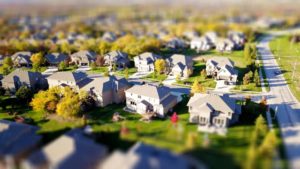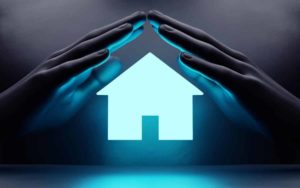If you are a landlord, you need to make sure your apartments are safe for all of your tenants. This is not only the right thing to do, but it is also good for you as a business person. A dangerous apartment could cause you serious trouble and could cause someone else serious harm. An unsafe apartment is not a happy outcome for anyone.
Luckily, performing some landlord general maintenance tasks can be enough to keep your tenants happy and safe. There are some very simple things you can do that will not only keep your buildings up to code but also prevent future problems. These tasks are nothing special, either. They are the sort of maintenance we should be performed regularly on a residential building.
Here are 4 landlord general maintenance tips to ensure your residents are happy and your business is running well.
1. Prevent Slips & Falls
As a landlord, one of the first things you want to look out for is slips and falls. Slips and falls are responsible for a huge amount of injuries around homes, businesses, and really everywhere else. Even a fairly mild fall can cause an ankle sprain. While many ankle sprains can be treated at home, even a mild sprain requires a week to 10 days to fully heal and a more severe one can require weeks of healing.
No one wants to be laid up for weeks at a time, but slips and falls are one of the inevitable foibles of life. So what can you do as part of your landlord general maintenance tasks to prevent them?
One of the biggest culprits for spills is stairs. If you have a building with stairs, especially outdoors, ensure the footing on each step is secure. If you live in an area that freezes, even just overnight, make sure those stairs aren’t frozen. Someone leaving their apartment early in the day could take a spill on that ice.
Other outdoor surfaces like parking lots can also get slippery even just in rain. Bathrooms are another common location for slips and falls. If you have older tenants, installing handrails can prevent a nasty accident.
2. Check for Water Damage & Leaks
Speaking of bathrooms, water damage and leaks can be a major hassle not just for you, but also for a tenant living in a soggy apartment. Your regular landlord general maintenance and inspections should include a quick scan for this kind of damage, as well as any leaks in the plumbing.
Leaks of this nature can be tricky. It is not always obvious what is going to leak and what won’t. For example, did you know a properly stored can of paint can last three to five years and still be usable?
When it comes to an apartment complex with a lot of interconnected units, a leak in one might indicate a leak elsewhere as well. If one tenant has a problem, don’t just fix it and call it good. You should also check to see if there is more widespread damage that you need to address.
3. Do Annual Maintenance on Furnace & Air Conditioner
The air conditioner and furnace can be a source of leaks as well, depending on the age and types of these appliances. These kinds of things might not be included in a typical listing, but that’s why it’s on you as the landlord to think about them and check up on them.
If you do a yearly or bi-annual landlord general maintenance check, don’t overlook the big stuff such as air conditioning and furnaces. Even if they are running fine and are expected to last several more years, it is worth taking a quick peek to just ensure that is the case.
A quick look could mean the difference between spotting a problem early and not seeing it until it is too late. That not only means more safety for your residents but also less cost for you in terms of having to perform repairs and maintenance when something breaks.
This can be especially important for air conditioning and HVAC units. The typical home releases about 2 tons of carbon dioxide every year just through the air conditioning. A unit that is not working optimally will be even more wasteful than that. Not only is this environmentally unsound and potentially hazardous to your residents, but it also raises your bills as an inefficient unit keeps spinning its wheels.
4. Test Smoke & Carbon Monoxide Detectors
Finally, take a look at your smoke and carbon monoxide detectors. It does not cost a lot of money to fix these kinds of things, as they often need nothing more complicated than a new battery. But having them working properly could make the difference between life and death for your tenants.
When people rent a home or apartment, they typically take it on faith that the smoke and carbon monoxide detectors work. It is one of those things that people don’t really think about until they have to. That makes it dangerously easy to overlook this bit of maintenance during your landlord general maintenance inspections.
As with everything else on this list, however, it is important to keep things up to date and running well. This makes your residents safer and keeps everyone happy.
None of these tips are especially arduous. Landlord general maintenance is largely routine and straightforward. However, even these simple, everyday steps can make a big difference for the happiness and safety of your tenants.


